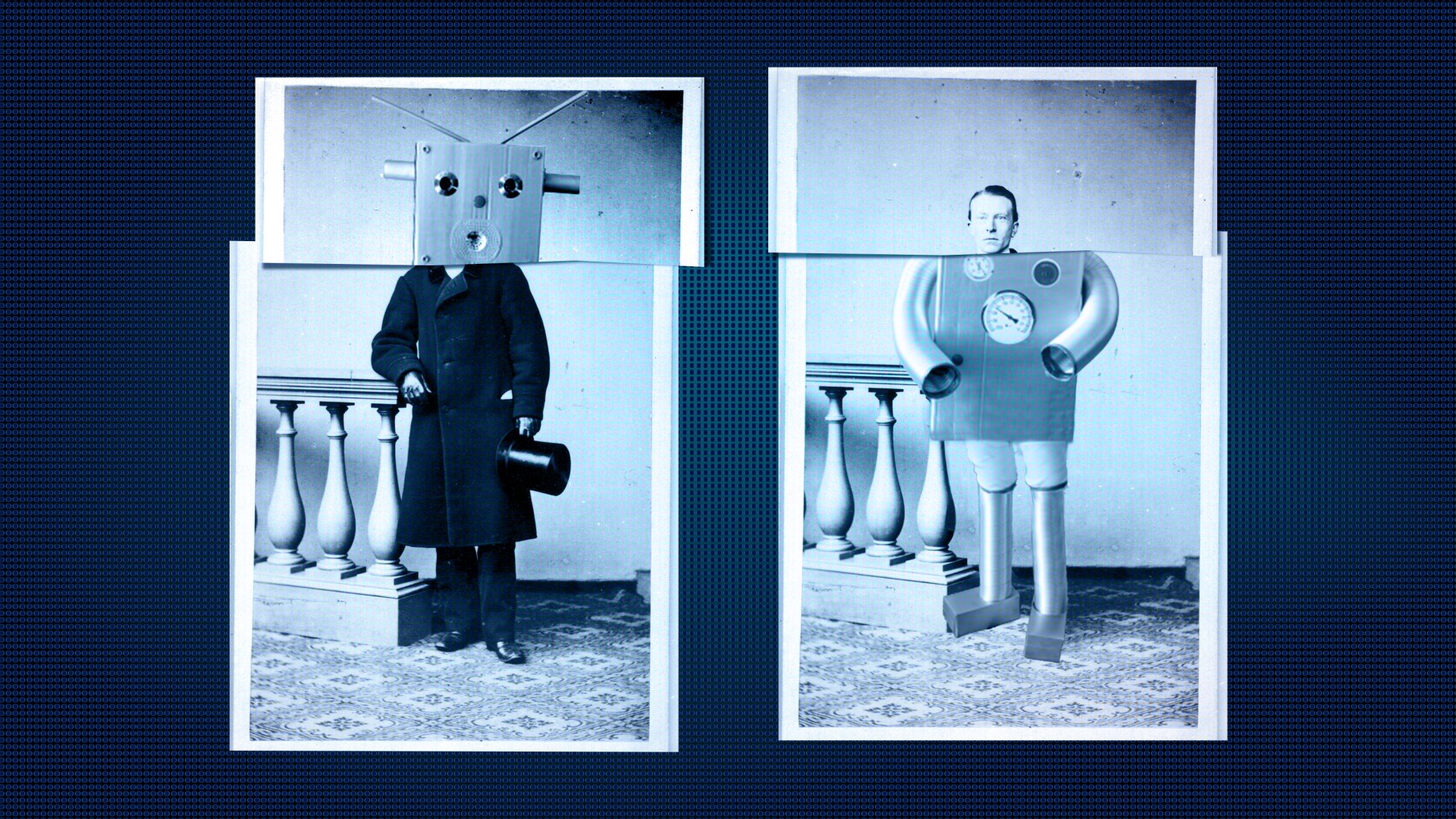Will artificial intelligence destroy humanity or elevate it to new heights? Silicon Valley technologists are in a tumultuous debate about this very question.
Elon Musk, owner of Tesla and SpaceX, is working with his new startup, Neuralink, to develop neuroprosthetic devices—tiny electrodes implanted into human brains that can connect us to computers and artificial intelligence (AI). The corporation received FDA approval to conduct human clinical trials after its controversial testing on primates. It’s raising substantial funds to compete in this industry and making headlines in the process.
Proponents claim they could treat quadriplegia or Parkinson’s disease—or augment cognition and memory. Musk believes that through this technology, we will “achieve a symbiosis with artificial intelligence.”
Despite its continuity with existing embodied technologies—such as eyeglasses, hearing aids, pacemakers, and smartwatches—neural implants are the first devices to enable humankind to interface directly with machines. Such new territory often invites either terrifying fears or massive hopes.
Terrifying fear, or techno-pessimism, imagines a dystopian future where human beings become dispassionate and dependent machines—while limitless hope, or techno-optimism, imagines a utopic future where technology solves all our woes. The latter logic flows as follows: AI cannot outpace human intelligence if we are one with it. In other words, if you can’t beat AI, join it.
But whether technology inhibits absolute human freedom or promotes absolute human power, both assume that humanity is an absolute law unto itself.
Egbert Schuurman, a Christian philosopher of technology, thinks that techno-pessimism and techno-optimism are both essentially religious in nature. Arguing that these views have to do with absolutes, Schuurman writes that “the fundamental choice upon which this pretension rests is a radical one and thus is religious in character.”
For example, if you think neural implants will either destroy or deliver us, that is a religious thought. If implanting computer chips in our brains becomes our ultimate hope or fear, then it has become either our god or our eternal enemy. Either way, Schuurman points out, the conversation takes a religious turn. And humanity will never develop a proper relationship with this technology if we seek to let it determine our absolute hopes or fears.
As a pastor and co-author of Redeeming Technology: A Christian Approach to Healthy Digital Habits, I want us to consider how any emerging technology might intersect with our theological framework. How can we think theologically about neural implant devices? Let’s consider three simple and questions: Do I want this? At what cost? For whose benefit?
Do we want this? Theologian Norman Wirzba said we should always ask ourselves whether any new technology is something we even want.
“This stuff is coming so fast,” Wirzba said of AI. “It’s coming with such allure because the promises are enormous and it’s really easy to get sucked into that. Because maybe it does not correspond to fundamental values that we should be having.”
The Bible says much about human ambitions and desires—and about how our wants can often become our wardens. Scripture is full of characters with misguided aspirations. Adam and Eve desired god-like freedom but later came to regret it. Israel wanted a king like the other nations only to be ultimately disappointed. Such stories can serve as a warning sign to limit our impulsive instincts.
Desiring new technologies to ease human suffering and disease can be a good and noble objective. But even a purely altruistic motive can eventually turn into the goal of optimizing basic human brain functioning. Do we want a future where human thought is indistinguishable from machine learning? Are we dissatisfied with the human brain in its present state such that we feel the need to augment our cognition and memory?
At what cost? We need to consider the ethical and societal costs that could come with bringing neural implants to market and whether the ends justify the means.
What humanitarian price are we willing to pay when it comes to how clinical trials are conducted on human subjects? What societal price are we willing to pay if this technology results in a steep divide between the technological haves and have-nots?
The answers to these questions will reveal our ultimate priorities. Martin Luther stated that a god is that which we fear, love, and trust in above all else. If we are willing to sacrifice anything—financially, ethically, societally—to bring neural implants to market, then this emerging technology has become our god.
For whose benefit? As of now, neural implants are positioned to benefit individuals with clinical deficits, such as people suffering from paralysis. But who stands to benefit when this technology reaches the wider consumer market?
Jesus calls us to love God along with loving our neighbors as ourselves (Mark 12:30–31). By keeping the focus on how neural implants might serve our neighbor—and not just ourselves—we can better ascertain the proper value of this emerging technology.
It is very likely that neural implants will go to market before these questions are answered, since neurotechnology companies are likely not thinking theologically about their creations. But as believers, we can reflect on how emerging technologies might impact us all.
Perhaps that starts with considering the impact existing wearable technology has on us. Has my Fitbit or Apple Watch brought more or less peace into my life? How does tracking my daily step count serve my neighbor? What is really driving my desire to have that next new wearable device like Apple’s Vision Pro?
Once we begin to think theologically about the devices we are already wearing on our bodies, maybe we will be better prepared to ask far bigger and harder questions—like what it might mean to implant devices in our brains that help us become one with AI.
A. Trevor Sutton is a Lutheran pastor in Lansing, Michigan, and co-author of Redeeming Technology: A Christian Approach to Healthy Digital Habits.









